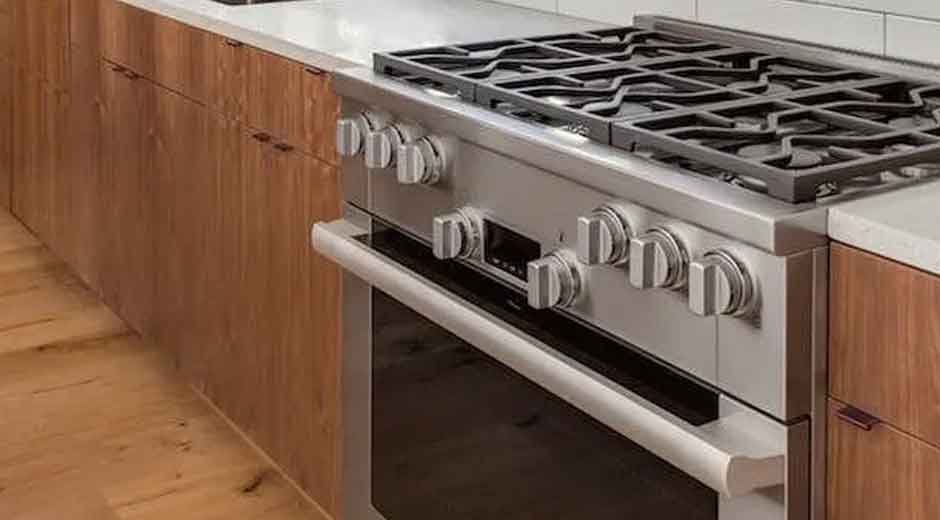Does a refrigerator or washing machine lifespan should last decades? You’d think so. But in today’s world with so many smart, digital appliances, the expected lifespan of these devices isn’t as long as it used to be. How many times did your grandparents have to replace their avocado-green fridge? Probably never!
That thing lasted twenty-five years before needing a replacement. With all the bells and whistles, modern-day appliances don’t even last the average ages expected. Knowing average expected lifespans helps with budgeting, maintenance, and when a replacement is more reasonable than potentially excessive repair costs.
What They Really Say
In present-day, refrigerators generally last around 10 to 15 years. Washers and dryers work for about 10 to 13 years, with dryers usually lasting one to two years longer than washers. Dishwashers last just slightly under those two – from 9 to 12 years – while ranges and ovens may exceed expectations and reach 13 to 15 years.
Unfortunately, microwaves are the most fragile members of the family, generally dying around year 9. Note these are averages; some appliances die younger while others are cockroaches that hold out longer than expected. The major difference usually has to do with factors most people don’t consider until after something breaks.
Why Quality Counts (Even When Everything is Expensive)
Not all appliances are made equally and you can feel it in your wallet from purchase to longevity. Budget-friendly appliances utilize cheaper parts – thinner metal on cabinets, plastic parts where metal should be, low-grade motors – that make it easy to stay within price range but hard to guarantee longevity. Manufacturers focus on making money rather than quality standards to satisfy buyers over decades.
Mid-range appliances boast better construction for price without the luxury version. Motors are stronger, drums are porcelain or stainless where plastic would usually suffice, and control boards utilize better materials. These usually last longer to upper end averages of years. Higher-quality models make it even more likely to exceed the averages but they’re more expensive because of features most people don’t necessarily need; only you can determine whether spending that extra cash on longer lifespan is worth it for you.
When they do break down, reaching out for professional help extends potential repairs significantly. Appliance Repair in Concord, NC helps homeowners with big ticket purchases from washing machines to ovens at a fraction of replacement costs; however, people have to catch the issues before they snowball into devastating levels.
How You Use Them Changes Everything
How we use our appliances makes a difference in their lifespans. For example, a washing machine used in a family of two doing laundry once or twice a week will last longer than a washing machine in a family of six using two loads a day. It’s basic math – motors, belts and drums wear out through overuse or high-capacity perage.
Overloading is a silent killer of appliance performance; stuffing an appliance past capacity burdens the motor and suspension system. Every time the appliance must use all its power to function, parts heat up too much and fail exponentially faster. The same is true for refrigerators that fill up too much without proper airflow and the compressor runs consistently to keep everything cold.
Temperature matters as well; garages or exposed laundry rooms that don’t boast temperature control work harder than those that maintain consistent atmospheres. A freezer in a 95-degree garage has to fight against other factors all summer whereas people don’t realize this when they shove their appliances wherever they’ll go.
The Maintenance Nobody Does (But Should)
This is where everyone’s their own worst enemy. Simple maintenance that takes ten minutes adds years to an appliance’s life – but almost no one does them.
Refrigerator coils need vacuuming every six months; when they’re covered in dust and pet hair, the fridge cannot release heat properly. This means the compressor works for longer hours at harder capacities which burns out the motor sooner. Easiest maintenance known and often neglected by everyone.
Dryers’ exhaust vents need cleaning every year (more if you do laundry frequently). This is not just a fire hazard but from a lifespan perspective, it’s unnecessary; when the dryer vent is clogged with lint, the dryer has to run longer to tumble clothes through dry – which ages heating elements and motors.
Washing machine hoses need checking annually for cracks and bulges. They’re under constant pressure, and if one breaks, you have flooding – and possibly an irreparable washing machine if water gets into electronics. Replacing hoses every five years is preventative maintenance on the cheap.
Dishwashers need filter cleanings once a month as well as spray arms checked for clogged food particles. Hard water or buildup forces the pump to work harder. Most people never touch their dishwashers until they aren’t cleaned properly anymore.
When Parts Fail Faster Than They Should
There are certain parts that fail too soon and everyone knows it. The control board and electronic displays fail before anything mechanical fails. This is often true in humid environments where moisture can corrode potential connections; thus, if the washer has a working motor and drum but a dead control board, the entire appliance is worthless.
If the refrigerator’s compressor fails before year eight but should last its entire lifespan, that’s a problem – and one replacement cost almost meets another fridge. This is one of those where paying to repair isn’t cost effective when replacement is too tempting.
Heating elements in dryers and dishwashers are consumable parts; they’re exposed to thermal cycling and while they usually don’t cost much to replace, they can easily add years to an appliance.
Door seals and gaskets break down over time too, especially on front-load washers. If a door seal isn’t appropriately sealed it might not seem like an emergency but if water leaks out where it shouldn’t, it gets into electronics and causes mold growth issues.
The Efficiency Question Nobody Wants To Ask
An older appliance that’s still working might cost more to run than it’s worth. Refrigerator appliances from fifteen years ago use exponentially more electricity than an Energy Star model today; washing machines need less water and energy than their ancestors.
But this is tricky – while saving energy over time does save money down the line for new investments, it takes years for it to pay off, if it ever does. Do the math on projected energy costs with a new model vs what currently works with the old one and see how much time it takes for savings to catch up with projected new purchase costs. Sometimes it makes more sense (for energy efficiency) for things to run than replace them if they’re already functional.
What’s Worth Your Money
Extended warranties are expensive but hit or miss as most major breakdowns occur within year one (manufacturer warranty) or after extended warranties fail. There’s only a small window where extended warranties profit you in your favor.
Service contracts through professionals make more sense if you have multiple aging appliances at once since you end up pre-paying for repairs that guarantee service instead of gambled payments with not much help after-the-fact.
Quality makes more sense at purchase; spending an extra $200 on a better-built washer that lasts 13 years instead of 8 years seems like a no-brainer – who wants cheap just so they can replace sooner? Research reliability ratings – not just features for purchase – which help more down the line.
The reality is that today’s appliances likely won’t last as long as your parent’s did but that’s just manufacturing changing through complex components – and planned obsolescence is a reality sometimes too – but knowing what’s to be expected day-in-and-day-out helps adjust for maintenance and early troubleshooting efforts. Most appliances will last at least ten good years with decent precautions – and that’s not bad for how hard they work nearly every day!










